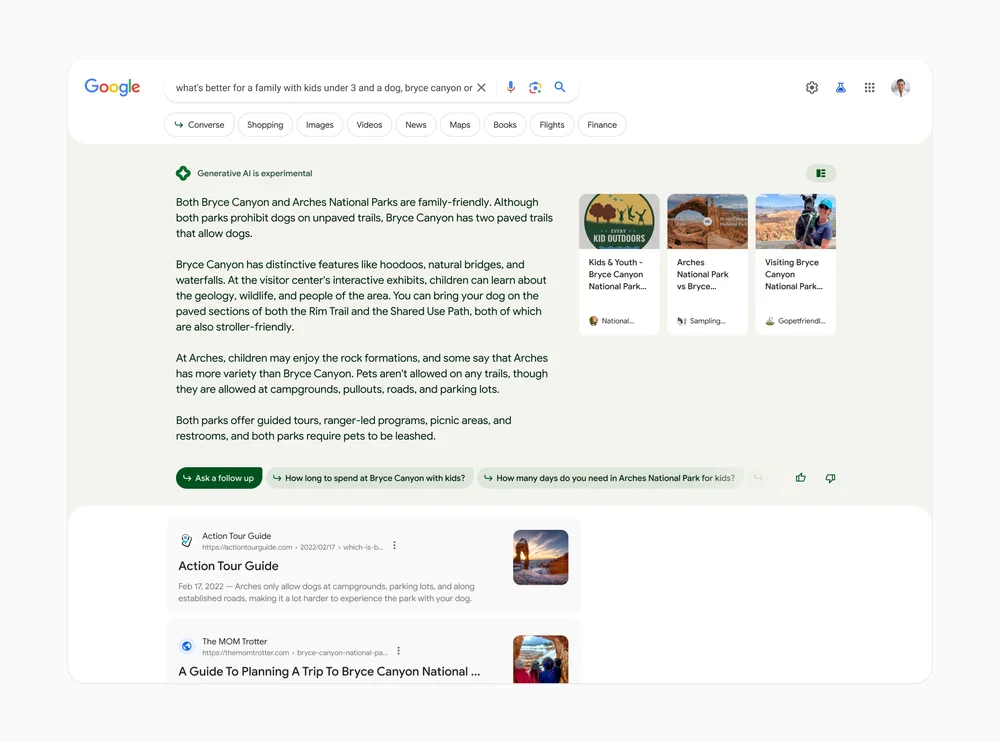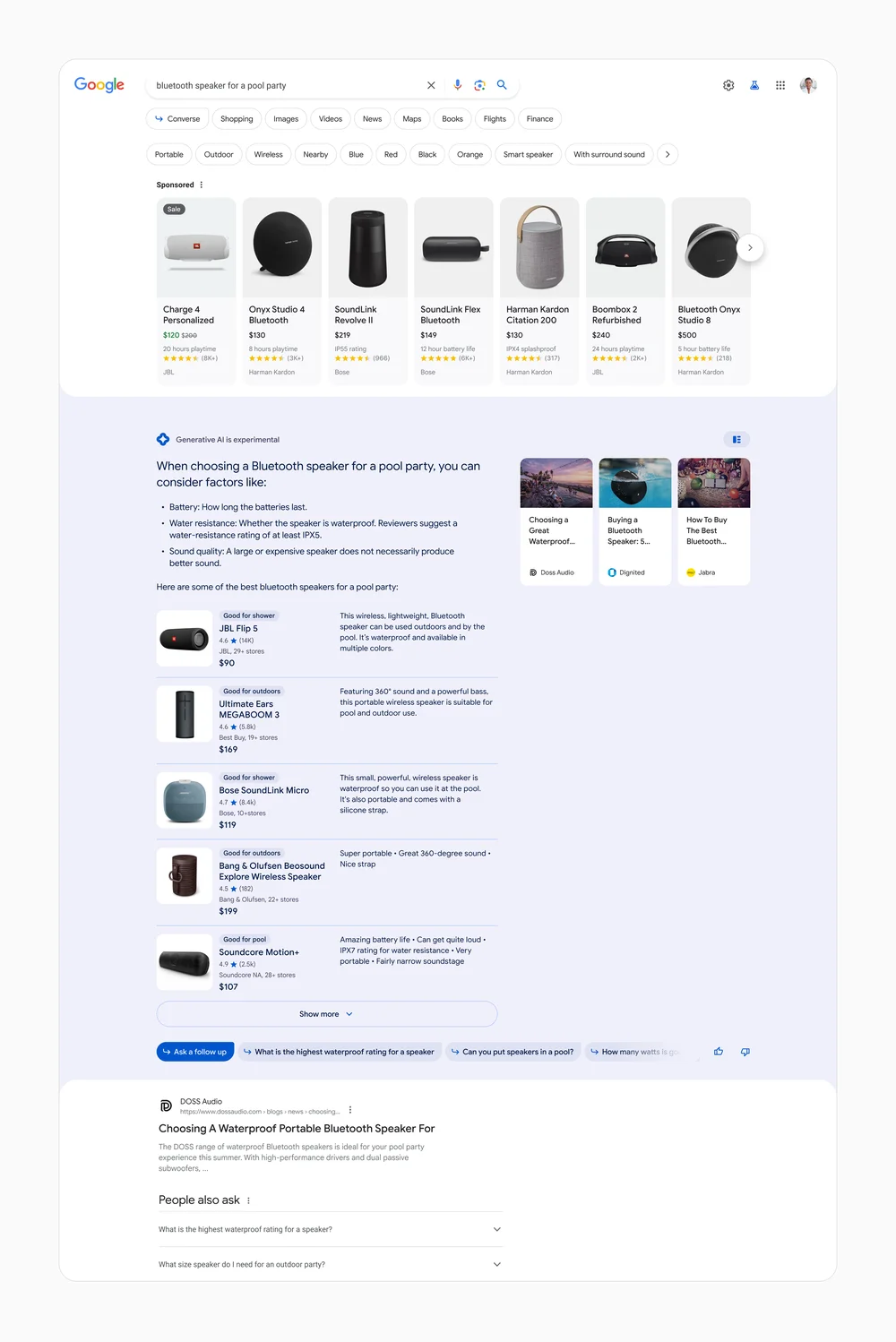
I read an interesting article last week which suggested links from sites with good authority could become less relevant as Google rolls out Generative AI responses in search results.
The authors’ argument is that searches at the top of the funnel, typically broader searches will be dominated by AI generated responses. Certainly it seems likely that they are the types of searches can be easily answered to a searchers satisfaction by an AI response.
But he proposes that this will mean ‘everything about links and SEO are going to change’ and in summary that links from high domain authority sites won’t be as useful in improving search ranking because mid funnel terms won’t have such fierce competition.
I’m not sure I agree. But before I get into why, a bit of background on Google generative AI.
So what is Google’s generative AI?
Generative AI is Google’s latest experiment to improve the search experience. It adds a new element when you’ve made a Google search that is populated with an AI powered response.
This response is designed to give you a faster and more in depth answer to your query within the results page.
It looks like this:

How is it going to improve search?
Or at least, how do Google think it’s going to improve search? Or at least, how do Google think it’s going to improve search? Google have published three areas they expect generative AI to improve the search experience.
Firstly that it’ll help searchers “easily get up to speed on a new or complicated topic.” It’ll use AI to add extra details to the result box rather than suggest just links that we’d have to explore or basic snippets.
Next Google thinks it’ll help “uncover quick tips for your specific questions.” where it’ll use AI to deliver answers and also possible next steps or onward searches.
Lastly generative AI should help us, “discover a range of products and things to consider while shopping.” This doesn’t sound particularly ground breaking but in practice it could be quite clever.
But the example given by Google is the search ‘Bluetooth speaker for a pool party’ and the AI goes to work looking for shopping results that might have attributes that make them especially suitable for a pool party, like water resistance, suitability for using outside etc.

What does that mean for SEO?
If the author is right about the generative AI results will start to dominate searches where there is a simple top of funnel answer. Then it’ll most likely mean (as he also suggests) that more people will target keywords further down the funnel, more specifics.
His example is…
Something I already advocate for anyone wanting to improve their search performance is to pay attention to the singles in the SERP in particular the ‘People also ask’ box. These are normally based on longer phrases along the same topic and generally have less competition than the shorter top of funnel queries.
Thing is, if more of us target those mid funnel and longer tail queries, they’ll become more competitive. The sites that were targeting the top of funnel phrases who lose traffic to Google AI generated results will naturally be looking to replace that traffic.
Google will still need ranking factors to asses who is going to provide the best experience for visitors who’s query wasn’t answered by their AI result, or who made a search that their AI didn’t have a response to.
What do you need to do in preparation for Google AI search results?
Firstly it’s a good idea to look at how much of your traffic comes from search queries that are likely to have AI generated answers. Make sure you’ve got your Google search console and Google Analytics 4 tracking relevant data so you can make informed decisions.
If they make up the bulk of your traffic I wouldn’t panic, you’re still likely to be in a strong position. Your site clearly has some search equity, but I’d start planning now to include some of the longer phrases in your content and build out new content to make sure you’re not about to get outranked by people who’ve focused on those related but lower volume searches.
Google’s objective is to keep us happy using them as a search engine and they do a very good job of it. I think it’s unlikely they’ll drastically change the ranking factors for determining the position of search results that has served them so well and keeps them as the worldwide market leader in search.
So, keep looking for opportunities to communicate and prove subject expertise with detailed content, authoritative and relevant links and we’ll see how the SEO landscape continues to evolve with AI.
Ready for a conversation?


